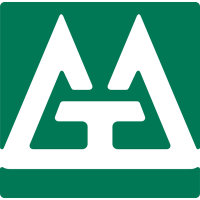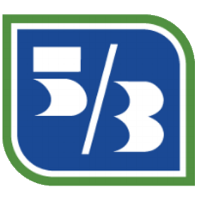
KeyCorp
NYSE:KEY


| US |

|
Johnson & Johnson
NYSE:JNJ
|
Pharmaceuticals
|
| US |

|
Berkshire Hathaway Inc
NYSE:BRK.A
|
Financial Services
|
| US |

|
Bank of America Corp
NYSE:BAC
|
Banking
|
| US |

|
Mastercard Inc
NYSE:MA
|
Technology
|
| US |

|
UnitedHealth Group Inc
NYSE:UNH
|
Health Care
|
| US |

|
Exxon Mobil Corp
NYSE:XOM
|
Energy
|
| US |

|
Pfizer Inc
NYSE:PFE
|
Pharmaceuticals
|
| US |

|
Palantir Technologies Inc
NYSE:PLTR
|
Technology
|
| US |

|
Nike Inc
NYSE:NKE
|
Textiles, Apparel & Luxury Goods
|
| US |

|
Visa Inc
NYSE:V
|
Technology
|
| CN |

|
Alibaba Group Holding Ltd
NYSE:BABA
|
Retail
|
| US |

|
3M Co
NYSE:MMM
|
Industrial Conglomerates
|
| US |

|
JPMorgan Chase & Co
NYSE:JPM
|
Banking
|
| US |

|
Coca-Cola Co
NYSE:KO
|
Beverages
|
| US |

|
Walmart Inc
NYSE:WMT
|
Retail
|
| US |

|
Verizon Communications Inc
NYSE:VZ
|
Telecommunication
|
Utilize notes to systematically review your investment decisions. By reflecting on past outcomes, you can discern effective strategies and identify those that underperformed. This continuous feedback loop enables you to adapt and refine your approach, optimizing for future success.
Each note serves as a learning point, offering insights into your decision-making processes. Over time, you'll accumulate a personalized database of knowledge, enhancing your ability to make informed decisions quickly and effectively.
With a comprehensive record of your investment history at your fingertips, you can compare current opportunities against past experiences. This not only bolsters your confidence but also ensures that each decision is grounded in a well-documented rationale.
Do you really want to delete this note?
This action cannot be undone.

| 52 Week Range |
13.2
19.97
|
| Price Target |
|
We'll email you a reminder when the closing price reaches USD.
Choose the stock you wish to monitor with a price alert.

|
Johnson & Johnson
NYSE:JNJ
|
US |

|
Berkshire Hathaway Inc
NYSE:BRK.A
|
US |

|
Bank of America Corp
NYSE:BAC
|
US |

|
Mastercard Inc
NYSE:MA
|
US |

|
UnitedHealth Group Inc
NYSE:UNH
|
US |

|
Exxon Mobil Corp
NYSE:XOM
|
US |

|
Pfizer Inc
NYSE:PFE
|
US |

|
Palantir Technologies Inc
NYSE:PLTR
|
US |

|
Nike Inc
NYSE:NKE
|
US |

|
Visa Inc
NYSE:V
|
US |

|
Alibaba Group Holding Ltd
NYSE:BABA
|
CN |

|
3M Co
NYSE:MMM
|
US |

|
JPMorgan Chase & Co
NYSE:JPM
|
US |

|
Coca-Cola Co
NYSE:KO
|
US |

|
Walmart Inc
NYSE:WMT
|
US |

|
Verizon Communications Inc
NYSE:VZ
|
US |
This alert will be permanently deleted.
 KeyCorp
KeyCorp
 KeyCorp
Short-Term Debt
KeyCorp
Short-Term Debt
KeyCorp
Short-Term Debt Peer Comparison
Competitors Analysis
Latest Figures & CAGR of Competitors

| Company | Short-Term Debt | CAGR 3Y | CAGR 5Y | CAGR 10Y | ||
|---|---|---|---|---|---|---|

|
KeyCorp
NYSE:KEY
|
Short-Term Debt
$2.4B
|
CAGR 3-Years
34%
|
CAGR 5-Years
22%
|
CAGR 10-Years
4%
|
|

|
PNC Financial Services Group Inc
NYSE:PNC
|
Short-Term Debt
N/A
|
CAGR 3-Years
N/A
|
CAGR 5-Years
N/A
|
CAGR 10-Years
N/A
|
|

|
M&T Bank Corp
NYSE:MTB
|
Short-Term Debt
$2.6B
|
CAGR 3-Years
193%
|
CAGR 5-Years
-14%
|
CAGR 10-Years
32%
|
|

|
Truist Financial Corp
NYSE:TFC
|
Short-Term Debt
$20.9B
|
CAGR 3-Years
59%
|
CAGR 5-Years
15%
|
CAGR 10-Years
21%
|
|

|
Fifth Third Bancorp
NASDAQ:FITB
|
Short-Term Debt
$536m
|
CAGR 3-Years
-15%
|
CAGR 5-Years
-18%
|
CAGR 10-Years
-15%
|
|

|
First Citizens BancShares Inc (Delaware)
NASDAQ:FCNCA
|
Short-Term Debt
$1.6B
|
CAGR 3-Years
35%
|
CAGR 5-Years
26%
|
CAGR 10-Years
7%
|
|
KeyCorp
Glance View
KeyCorp, the parent company of KeyBank, has established itself as a prominent player in the financial services sector, primarily serving the United States. Founded in 1849, KeyCorp has evolved into a full-service bank offering a variety of consumer and commercial banking services, including retail banking, mortgage lending, and investment services. With a strong presence in the Midwest and Northeast regions, the company prides itself on building long-term relationships with its clients, emphasizing personalized services and financial wellness. KeyBank's focus on innovation and digital banking solutions has also positioned it well to adapt to the evolving needs of customers, ensuring its competitiveness in an increasingly tech-driven landscape. As an investor, it's essential to recognize KeyCorp's commitment to strong financial performance and prudent risk management. With a diversified revenue stream, the bank has shown consistent growth in both deposits and loans, reflecting a solid credit culture and a focus on expanding its market share. Additionally, KeyCorp's strategic partnerships and investments in technology are aimed at enhancing customer experience and operational efficiency. Its robust capital position and regular dividends make it an attractive option for income-focused investors, while the company’s initiatives toward sustainability and community engagement resonate with socially responsible investing trends. In a time of economic uncertainty and regulatory changes, KeyCorp's adaptability and forward-thinking approach provide a compelling narrative for potential investors looking to navigate the financial landscape.

See Also
What is KeyCorp's Short-Term Debt?
Short-Term Debt
2.4B
USD
Based on the financial report for Sep 30, 2024, KeyCorp's Short-Term Debt amounts to 2.4B USD.
What is KeyCorp's Short-Term Debt growth rate?
Short-Term Debt CAGR 10Y
4%
Over the last year, the Short-Term Debt growth was -32%. The average annual Short-Term Debt growth rates for KeyCorp have been 34% over the past three years , 22% over the past five years , and 4% over the past ten years .






























 You don't have any saved screeners yet
You don't have any saved screeners yet